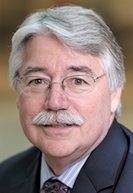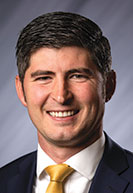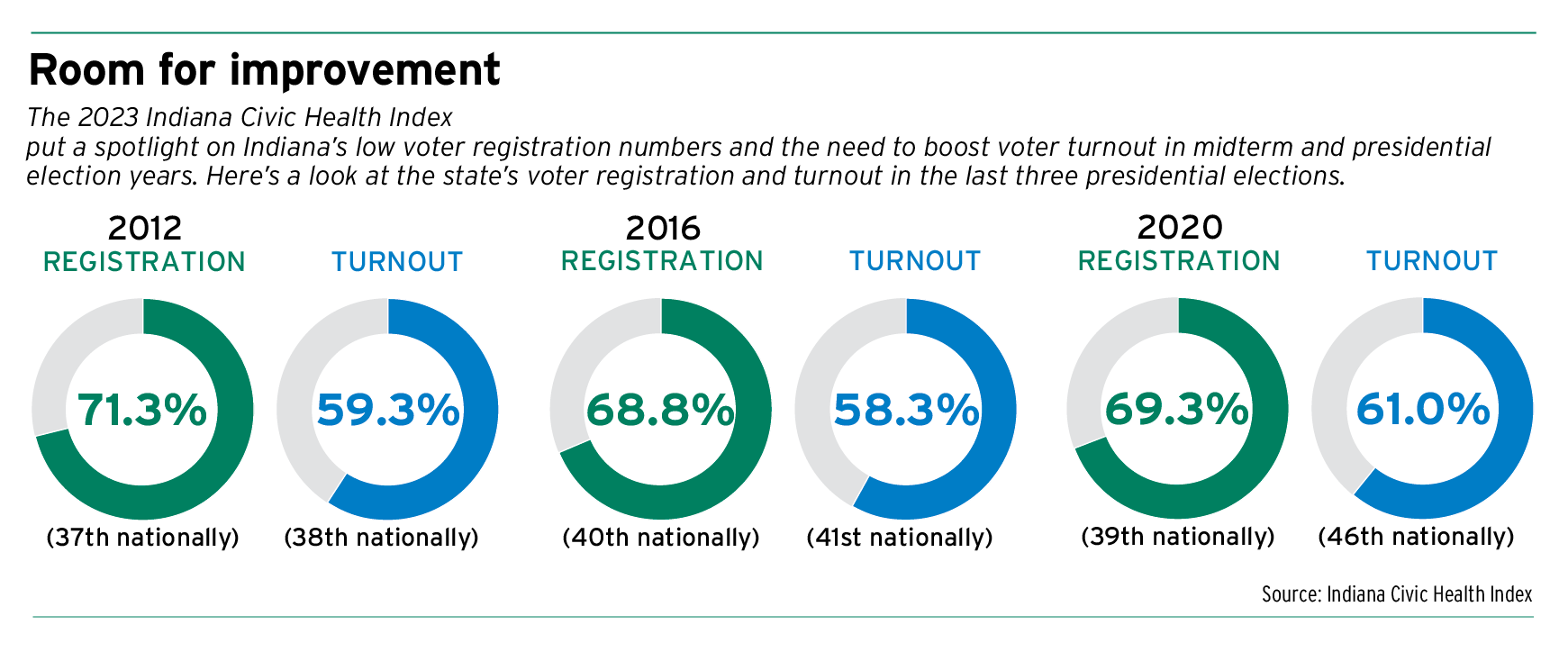Subscriber Benefit
As a subscriber you can listen to articles at work, in the car, or while you work out. Subscribe NowIndiana’s struggles with voter registration and turnout are nothing new.

Charles Dunlap, the Indiana Bar Foundation’s president and CEO, acknowledges that every time a new edition of the Indiana Civic Health Index is released, the state’s relatively low national ranking on voting-related statistics is a consistent theme.
The index’s sixth edition, released in January, was no different, with data showing Indiana ranked 50th nationally in voter turnout in the 2022 midterm elections, with a 41.9% rate, and 40th in voter registration.
That voter turnout rate represented a 7.4% decline from 2018.
“Sadly, the voting message is pretty consistent with the last several editions,” Dunlap said.
To address the state’s voting issues, the INCHI recommended a renewed interest in efforts to increase the number of registered voters, particularly in the 18-21 age range, for the 2024 general election.
The index cited the Indiana Department of Education’s public schools enrollment report, which found that there are approximately 80,000 students in each of this year’s senior and junior classes, representing almost 160,000 potential new voters for this year’s election.
According to the index, in September 2020, Tufts University’s Center for Information & Research on Civic Learning and Engagement, or CIRCLE, released a study that drilled into the voter registration files of 39 states, including Indiana. The study compared the number of registrants as of August 2020 to November 2016.
In the 18-24 age group, Indiana ranked 33rd. In the age group 18-19, Indiana ranked last.
CIRCLE also performed the same analysis for the 2022 midterm elections, comparing November 2022 to November 2018.
In Indiana, the number of youths registered was 14% lower in the 18-24 group, with 36 of 41 states reviewed, and 54% lower among the newly eligible 18-19 ages, with 37 of 41 states reviewed.
Dunlap said the Indiana Bar Foundation and other grassroots groups are going to focus on getting voters in the 18-21 age group to register before the October deadline. He said that age demographic typically has the lowest voter participation statistics every election.
“The older you are, typically you’re more engaged in voting,” Dunlap said.
He added that Indiana has a streamlined process for voter registration.
Report findings
Dunlap stressed there were also some good takeaways from the index, such as efforts to boost civics education in Indiana.
He mentioned the new state requirement, which began in January, that all sixth-grade students take one semester of civics education. Indiana is one of only seven states with a middle school civics requirement.
But the INCHI lists formal participation in the electoral process, in the form of voter registration and turnout, as the state’s most significant civil health challenge.
The report notes the national voting rate of 52.2%, compared to Indiana’s 41.9%.
“It should be noted that Indiana consistently placed in the bottom 10 of all states on midterm voter turnout since 2010. The presidential election year turnout was even less encouraging,” the report adds.
In 2012, Indiana ranked 36th in voter turnout, but by 2020, the state’s rank in presidential election years fell to 46th.

Further, the state’s voter registration ranking has consistently fallen between 2010 and 2022, according to the report, with its most recent rank of 40th at 66.5%.
“It is in the area of voter registration that the most significant impact can be made in preparation for the upcoming 2024 election, especially with a concentrated focus on registration of Hoosier youth,” the report says.
Dunlap said the bar foundation and other groups are going to take a close look at what would attract people in the 18-21 age group to register.
Former Indiana Attorney General Greg Zoeller appeared with Dunlap at the release of the report in January.
Zoeller said the report’s findings represented a challenge to rise to the occasion for the state’s residents. He recalled taking his children to the polls every year when they were young.
Bill Moreau, founder and president of the Indiana Citizen Education Foundation Inc., said the voting data from the report shows the state’s voting trends are heading in the wrong direction.

Moreau said the report data show a need for improvement “if you care about this stuff.” Also, he said it should be a wake-up call for the state.
“I think one of the great hallmarks of the American democracy, in contrast to countries that compel you to vote, is that you can make a choice by staying home. And Hoosiers are staying home,” he said.
Moreau repeated a statement he attributed to former Indiana Gov. Mitch Daniels, who referenced the state’s 50th ranking nationally in 2022 midterm election turnout and declared, “We’re better citizens than that.”
Voting legislation being considered
As of Jan. 2, the Indiana Secretary of State’s Office reported that 4,674,413 Hoosiers are registered, according to the index. That means that about 92% of eligible Hoosiers are registered and about 8% — or 387,481 — are not.
The index notes that “this over-statement of the number of registered voters persists in every state due to death, out-migration and movement within a state.”
For the 2023 INCHI, 66.5% of those surveyed said they were registered to vote in the 2022 elections. That would mean 3,366,160 Hoosiers were registered in November 2022 and 1,695,734 were not.
The League of Women Voters of Indiana has placed a high priority on deploying its local members to high schools to register students, according to the index. Also, it is anticipated that such groups as the Community-Engaged Alliance will supplement student-led efforts to promote registration.
While civic groups push for increased participation at the polls, there is also some proposed legislation regarding voter registration in front of the Indiana General Assembly.

Rep. Tim Wesco, R-Osceola, has authored House Bill 1264.
Under the bill, residents who are first-time voters in Indiana would have to provide proof of residency when registering in person unless they submit an Indiana driver’s license or Social Security number that matches an Indiana record, according to The Associated Press.
The new bill would allow the state to contract with third-party vendors who supply credit data, which would be cross-referenced with voter registration records to identify possible residence changes and any voters registered at non-residential addresses.
The bill also requires officials to cross-reference the state’s voter registration system with data from the Indiana Bureau of Motor Vehicles.
At a Jan. 10 House Elections and Apportionment Committee hearing, Brad King, Republican co-director of the bipartisan Indiana Election Division, told the committee he supported the bill and what he called its overall theme of election security.
“We’re always looking at new methods to make sure the voter rolls are accurate,” King said.
But Matthew Kochevar, Democratic co-general counsel at the election division, noted to the committee in his testimony that current law already forbids noncitizens from registering to vote.
HB 1264 passed the house on a 67-29 vote and has been assigned to the Senate Elections Committee, which scheduled a hearing for Feb. 12.•
Please enable JavaScript to view this content.

